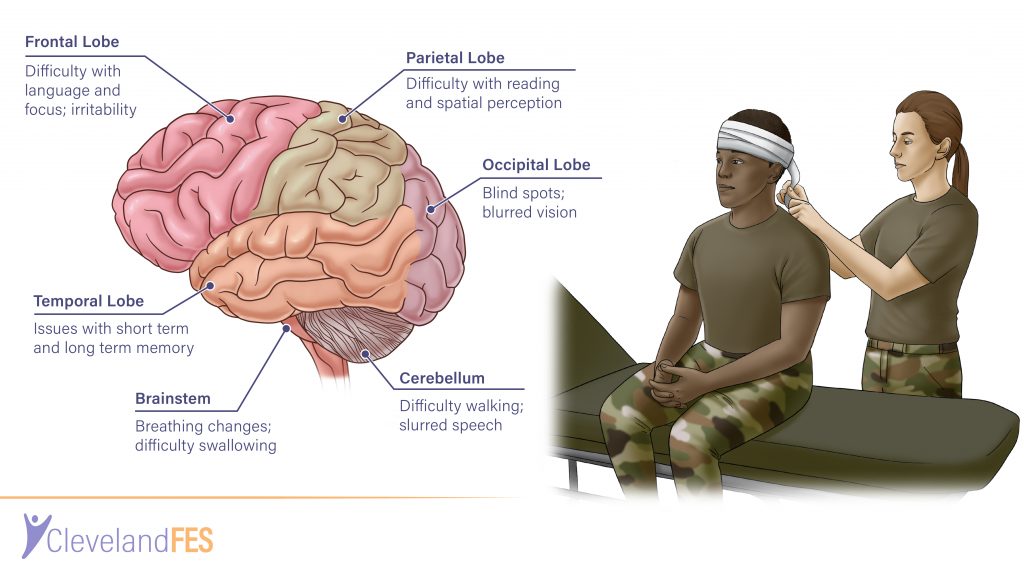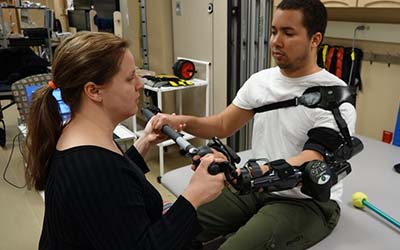Traumatic brain injury (TBI) is caused by external physical force that may produce a diminished or altered state of consciousness, which results in an impairment of cognitive abilities or physical functioning.
Mild TBI may cause temporary dysfunction of brain cells. More severe TBI can result in bruising, torn tissues, bleeding and other physical damage to the brain that can cause long-term complications or death.
Symptoms of a TBI may not appear until days or weeks following the injury. A concussion is the mildest type of TBI. It can cause a headache or neck pain, nausea, ringing in the ears, dizziness, and tiredness. People with moderate or severe TBI may experience those symptoms, in addition to others including a persistent or worsening headache, repeated vomiting or nausea, convulsions or seizures, inability to awaken from sleep, slurred speech, weakness or numbness in arms and legs, and dilated eye pupils.


